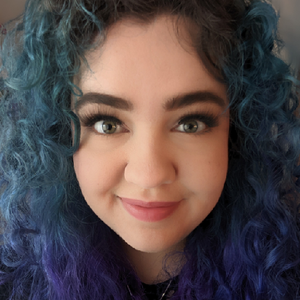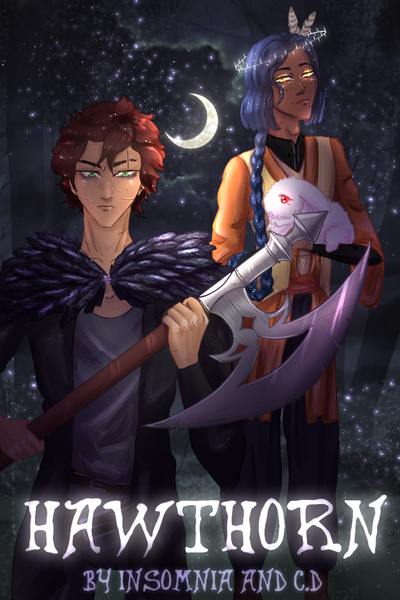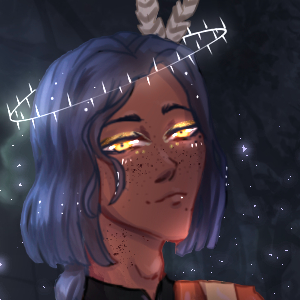There was a great ruckus about. Unfamiliar calls cut through the dry air, which was very strange, because Jeade had thought, by now, that he’d learned to read the patterns in the odd noises the humans made from time to time. He could not tell what was happening. Clouds of dust and sand obscured his vision; even standing a head taller than the other horses, he could not avoid the debris they kicked up in their frenzy. Jeade wished they would calm down, but he had no way to convey this to them, and they would not listen regardless. The other horses didn’t like Jeade. They didn’t like that he was so much bigger than they were, that he got to pull carts and carry loads while they were ridden into dark alleys and made accomplice to acts that left them shivering when they returned, coats stained and matted red.
But Jeade’s coat had been sullied many times, too, and whether it was from his own blood, spilled after one too many strikes of the foreman’s whip, or that of some human in an alley, what was the difference, really? It was all the same red.
There was heat in the air, Jeade could tell that much. Heat, which meant the humans were carrying torches. He could hear their footsteps—the small ones were running, but then, the small ones were often running, around and around in circles along the perimeter of the little beige cloth-huts. That was one thing Jeade could make out, above the clouds of dust: the tips of the humans’ little homes, and, atop them, thin red ribbons fluttering as the wind brushed them. Jeade could feel his own ribbons stirring; they were woven into his harness, but their long tails hung low on either side of his jaw. He had seen himself in stillwater, once, and thought that those ribbons looked like dripping blood.
The heat grew more intense; more humans, running about with more torches. The other horses began kicking again, and suddenly Jeade felt inclined to join them. Didn’t the humans know fire was dangerous? There were so many small ones in the field—perhaps they really didn’t know. Or perhaps they knew and did not care. From what Jeade knew of these humans, they did not seem to care much for each other, let alone Jeade and the other horses. He moved away from the others, towards the fence, and leaned over it. By now the humans had kicked up nearly as much dust as the horses; Jeade strained to see what was causing all the ruckus.
From within the camp, there came a cry, and the sound of stone grating against stone. Jeade flinched back from the fence. That was not a good sound. No good ever came from that sound. Suddenly the calls in the air changed, and Jeade did not need to listen long to know what they meant: fear. Fear, and pain, and anger. He backed away further, and looked behind him to see that the others had already fled as far back as they could, to the other side of their field. Jeade wanted to follow them, but his legs would not lift; he turned back to the camp, gaze fixed on the little huts, on the shadows dancing across them, distorted and unsettling in their movements. The cries kept coming—screams, roars, demands. The shadow dancers became frenzied, the sounds of stone and metal clanging—Jeade’s ears twitched and he twisted them around to point backwards, but it did nothing to muffle the screech of human weapon meeting human weapon. In spite of himself, he inched forwards again, nose straining to catch an odd scent that suddenly infused the air. As he reached the fence he realized: it was blood.
And then, through the dust, there was a boy. One of the small ones. He was running, his feet bare even though Jeade knew that the humans liked to cover them. In both hands he dragged a stone axe twice his size. This boy, Jeade realized, was the source of the blood smell; he was covered in it. He ran straight towards Jeade, but Jeade did not move, even as the other horses squealed and stomped behind him. He felt, somehow, that he had nothing to fear from the boy.
Other humans appeared—the big ones, now, at last. There was a group of them, following the boy. The one in front howled as he ran, his hand pressed over his face. Jeade could see red dripping between his fingers and he looked down at the boy as he approached. Was it him who had caused this ruckus? The boy was stumbling, now, as he ran, the axe drawing a thick line in the dirt where it trailed along the ground. He was very small—most humans were, but this one was particularly little, even for a small one. Jeade watched as the boy let out a frustrated cry, dropping the axe and running twice as fast as before. In the next moments, he was scrambling over the fence. The shouts behind him grew louder, more intense—the big ones were furious. Jeade turned his head to see the boy balancing atop the fence. His legs were trembling ever so slightly, and he was clutching his arm to his side as though injured, but his gaze was completely focused on Jeade. His eyes were green. This was something Jeade had not seen before. He couldn’t have said why, but in the next moment Jeade felt himself moving closer, turning his body so that the human could climb atop his back. Jeade did not see the boy’s expression, but as a featherlight weight settled on his back, he thought he could read the boy’s emotions in the tension of his muscles, in the way he gripped at Jeade’s mane like it was his sole tether to life.
The big ones approached the fence. The boy let out a quiet whimper. Jeade looked between them, and then he turned around and ran.
~ · ~
Jeade ran. He ran for hours and hours, all through the night, until the brown dust turned to grass and the sky turned from black to blue, and then to pale pink, and light appeared on the horizon. The boy clung to him all the while; he was slumped against Jeade’s neck, but Jeade could tell that he was not asleep. He thought, perhaps intuitively, that the boy would not sleep for days to come, not until they were far away, not until the sounds of metal and stone had faded from his ears and the stench of blood from his nose. Jeade knew this because this was exactly what Jeade would do. Jeade had been a prisoner of humans, and now his chains were broken, but he was not, would never truly be, free.
He and the boy were kin, in that.
It was near dawn when the boy lifted himself from Jeade’s neck and began to tug at his mane—gentle, but insistent. Jeade did not need to be convinced; he, too, could see the small creek running between the two hills before them. Beyond it lay the horizon—empty. Limitless.
They came to a stop before the water and the boy slipped from Jeade’s back, making no noise as he did so. His eyes darted constantly from side to side, arms wrapped tightly around his torso, but there was no sound here but the quiet burble of the creek. Slowly, the boy stepped into the water. It turned red around him. Jeade watched him wash the blood from his clothes, from his hair, from his skin. Even when it was all gone, even when the water ran clear again, the boy did not stop scrubbing. When he began to scratch at himself, when angry red marks formed on his arms, Jeade trotted forward, nudging the human’s shoulder. The boy turned. He placed a hand on Jeade’s nose, and gently drew him into the creek. Once again the water ran red, and then brown, as the boy cleaned Jeade’s coat—much more gently, Jeade thought, than he had cleaned himself.
When they were done, and standing once again on the banks of the creek, the boy stood up on his toes and his fingers found something in Jeade’s mane. He drew out a red ribbon that Jeade had not realized was there, and clenched it in his fist, and then dropped it on the ground and stomped on it. Then he looked at Jeade and spoke.
“They don’t own you,” he said, and his voice was cracked and hoarse and barely audible, and Jeade didn’t fully understand what the human words were, but he read their meaning in the boy’s eyes.
Jeade nickered, nudging the small one’s face, and the boy smiled. It looked lovely on him, Jeade thought. He didn’t know how to smile, but looking at the boy, he wished he could.
“Your name is Jeade, right?” the boy said, only he didn’t pronounce it Jeed, the way the big ones did, he pronounced it like Jey-ad. Jeade liked that. It felt like a new name, the way the boy said it. It felt like a new life. He nickered again, and the boy’s smile widened, and Jeade knew that he would do whatever it took to protect this small boy and his smile.
The boy patted his nose, and together they turned towards the horizon.
“It’s nice to meet you, Jeade. My name is Noras.”











Comments (2)
See all